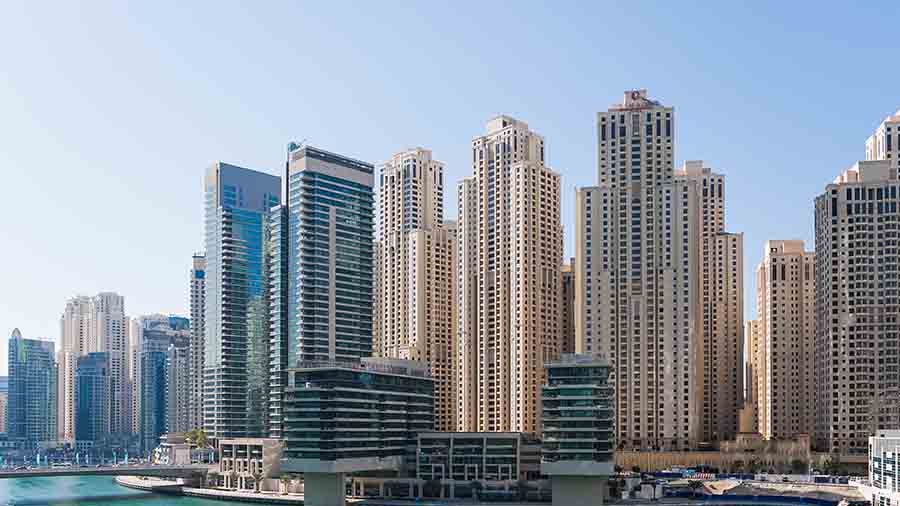What is profit repatriation?
Profit repatriation is the process by which companies operating abroad transfer their earnings from foreign subsidiaries or branches back to their home country or another central financial location. This practice is a crucial element of international business operations, allowing companies to channel profits into areas such as shareholder dividends, domestic reinvestment, or further global expansion. Essentially, it serves as the financial bridge connecting multinational corporations’ global earnings with their broader strategic goals.
Why is profit repatriation important?
For multinational corporations (MNCs) and foreign investors, profit repatriation represents more than just the movement of funds—it embodies the culmination of their efforts to capitalize on foreign markets. These earnings often contribute directly to a company’s ability to innovate, grow, and remain competitive. Moreover, ensuring the seamless transfer of profits is vital for maintaining liquidity, managing risks, and meeting stakeholder expectations.
From a global perspective, profit repatriation also intersects with the principles of tax efficiency and compliance. Companies must navigate international tax treaties, transfer pricing rules, and local tax regimes to avoid double taxation and ensure regulatory adherence. This makes profit repatriation not only an operational necessity but also a strategic and legal challenge for businesses operating across borders.
For companies operating in the UAE, profit repatriation benefits from the country’s flexible financial policies. The absence of foreign exchange controls and double taxation treaties with numerous nations allows businesses to remit profits with minimal bureaucratic and financial hurdles. This environment supports the UAE’s ambition to remain a leading destination for foreign direct investment (FDI) and reinforces its position as a premier hub for international commerce.
Legal framework governing profit repatriation
Corporate Tax Law (CTL)
The UAE’s Corporate Tax Law (CTL), codified under Federal Decree-Law No. 47 of 2022, marks a significant evolution in the country’s fiscal policies. This law introduced a federal corporate tax regime applicable to businesses operating within the UAE, aligning the nation’s tax landscape with global practices. Under the CTL, a standard corporate tax rate of 9 percent is imposed on taxable profits exceeding AED 375,000, while profits below this threshold are exempt to support startups and small businesses.
The introduction of this tax system does not detract from the UAE’s business-friendly reputation; instead, it reinforces transparency and compliance with international tax standards, such as those set by the OECD. Exemptions and relief mechanisms under the CTL, such as zero tax on certain qualifying entities operating in free zones, ensure the UAE remains an attractive destination for foreign direct investment. For profit repatriation, the CTL facilitates smooth operations by allowing businesses to transfer profits with minimal local tax burdens, particularly when coupled with the UAE’s extensive network of double taxation agreements.
Double Taxation Agreements (DTAs)
The UAE’s expansive network of double taxation agreements (DTAs) further strengthens its appeal as a global business hub. With 143 treaties, the UAE has one of the most comprehensive DTA portfolios in the world, covering countries across Europe, Asia, Africa, and the Americas. These treaties are designed to eliminate or reduce the risk of double taxation on income earned in one jurisdiction and repatriated to another.
For businesses, DTAs offer tangible benefits. Most agreements include provisions that significantly reduce or eliminate withholding taxes on dividends, interest, and royalties. This creates an efficient pathway for companies to repatriate profits without facing prohibitive financial barriers. Furthermore, these treaties foster greater legal and financial predictability for multinational corporations by providing clear frameworks for tax obligations.
Taxation framework
The UAE’s approach to taxation has undergone a transformation in recent years. Historically, the country was renowned for its tax-free environment, with no corporate income tax and zero taxation on personal earnings. This legacy attracted businesses seeking an environment of minimal fiscal burdens.
However, as the global economic landscape evolved, the UAE introduced targeted tax measures to align with international norms and diversify its revenue streams. Key milestones include the 2018 introduction of Value-Added Tax (VAT) and, more recently, the implementation of corporate tax under Federal Decree-Law No. 47 of 2022. These developments signify the UAE’s commitment to economic sustainability while maintaining its status as a low-tax jurisdiction.
The implications for profit repatriation are largely positive. The UAE’s competitive tax rates, combined with robust DTAs and the absence of foreign exchange controls, ensure businesses can efficiently transfer profits to their home countries.
Mechanisms for profit repatriation
Capital Repatriation
Capital repatriation refers to the process by which investors recover their initial investments from overseas operations. This is particularly relevant for multinational corporations and foreign investors looking to recoup their seed capital or surplus equity.
In the UAE, this process is streamlined due to the absence of capital controls and a supportive legal framework. Investors can repatriate capital through mechanisms such as:
- Capital reduction;
- Share buybacks; or,
- Liquidation of entities.
A key advantage in the UAE is the relative simplicity of repatriation procedures compared to more restrictive jurisdictions. Businesses must ensure compliance with corporate laws, such as obtaining approvals from stakeholders or regulatory authorities, depending on the method used.
Proper documentation and legal alignment with the UAE’s tax and corporate structures are essential to avoid delays or complications during the process.
Profit Distribution
Profit distribution encompasses a range of mechanisms businesses use to remit earnings to stakeholders or parent companies. The most common methods include:
- Dividends;
- Royalties; and,
- Interest payments.
In the UAE, declaring and distributing dividends is a straightforward process, particularly for entities operating within the country’s free zones or mainland jurisdictions. Many businesses also rely on intercompany loans, cash pooling, or intellectual property (IP) agreements to distribute profits effectively.
For example, royalty payments for IP usage or interest on intercompany loans may be subject to varying withholding tax rates depending on the treaties in place between the UAE and the recipient’s country.
Businesses often engage legal, tax, and treasury teams to align these transactions with strategic financial goals while mitigating risks, such as currency fluctuations or unintended tax liabilities.
Currency controls and compliance
One of the UAE’s strongest advantages for profit repatriation is its liberal approach to foreign exchange controls. Unlike many countries that impose restrictions or quotas on cross-border fund transfers, the UAE allows the free movement of capital and foreign exchange.
Both mainland entities and businesses operating within the UAE’s numerous free zones benefit from the ability to remit funds abroad with minimal bureaucratic or regulatory hindrances. Free zone companies, in particular, can repatriate 100 percent of their profits in compliance with the rules of their respective zones, making the UAE a highly attractive hub for international business operations.
Anti-Money Laundering (AML) Regulations
To bolster its reputation as a safe and transparent business environment, the UAE has taken significant steps to strengthen its anti-money laundering (AML) and counter-terrorism financing frameworks. These measures ensure that the financial system is robust and aligns with international best practices, such as those outlined by the Financial Action Task Force (FATF).
These laws provide a comprehensive framework to detect, report, and deter illicit financial activities. Additionally, the Central Bank Law (Federal Law No. 14 of 2018) ensures stringent oversight of financial institutions to enhance compliance and supervision.
Each free zone, such as the Dubai International Financial Centre (DIFC), has its own regulatory body, like the Dubai Financial Services Authority (DFSA), which issues supplementary rules to combat money laundering. This multilayered approach ensures a high degree of financial integrity while facilitating seamless profit repatriation.
Implications for businesses
While the absence of currency controls simplifies profit repatriation, businesses must remain compliant with AML laws to avoid penalties and reputational risks.
Organizations should ensure all financial transactions are transparent, well-documented, and reported when necessary. This is particularly relevant for multinational corporations engaging in large-scale or frequent fund transfers, as authorities may scrutinize these for compliance with AML regulations.
The UAE’s adherence to FATF standards provides additional reassurance to foreign investors, showcasing the country’s commitment to financial integrity and international cooperation. For businesses, these measures translate to a secure environment for profit repatriation without the encumbrance of restrictive currency policies. However, organizations should maintain proactive compliance strategies and align their financial operations with local and international AML requirements.
FAQs on dividend payments and foreign investment in the UAE
How does the UAE protect foreign investments?
The UAE safeguards foreign investments through robust legal frameworks and bilateral agreements. Key measures include:
- Rule of Law: Ensuring transparent and predictable legal processes.
- Protections Against Expropriation: Safeguards to prevent arbitrary confiscation of assets.
- Dispute Resolution Mechanisms: Availability of arbitration and specialized courts to resolve conflicts efficiently.
- Bilateral Investment Treaties (BITs): Agreements with numerous countries to protect and promote foreign investments.
Are there any specific laws foreign investors should be aware of about profit repatriation?
Foreign investors should familiarize themselves with:
- UAE Commercial Companies Law: Governing corporate structures and profit distribution.
- Anti-Money Laundering (AML) Laws: Federal Decrees No. 20 of 2018 and No. 26 of 2021, ensuring compliance with global financial standards.
- Sector-Specific Regulations: Rules pertaining to industries like real estate, finance, and healthcare.
How long does it typically take to pay a dividend?
- Onshore LLCs: The process usually takes around four weeks. Key steps include:
- Scheduling the annual general assembly at least 14 days in advance.
- Securing shareholder approval for dividend distribution, provided the LLC manager confirms the availability of distributable profits.
- Adopting a resolution for the distribution.
- Releasing the dividends, with the timing depending on case-specific factors such as bank requirements or fund transfer authorizations.
- Free Zone Entities: Dividend payments are generally faster, often around two weeks, especially for entities with a single shareholder. The preparation and signing of shareholder resolutions typically take about a week, while the actual payment timing depends on factors like bank requirements and signatory availability.
Are there timing restrictions on dividend payments?
While company regulations for LLCs and free zone entities typically address annual distributions, a company’s Memorandum of Association (MoA) may specify other distribution types, such as interim dividends. The process for interim distributions mirrors that of annual dividends and requires shareholder approval.
What financial documents are required to support dividend payments, and do they need to be audited?
The following accounts are necessary to support dividend payments:
- Balance sheet
- Profit and loss accounts
- Annual report for the relevant financial year
- Auditor’s report
Are there restrictions on the amount of dividends that can be paid?
No, provided that:
- Legal reserves are set aside before distribution.
- There are distributable profits.
- The company can meet its debt obligations after the dividend payment.
Can reserves be increased, and how long does it take?
Yes, reserves can be increased through mechanisms such as:
- Capital reduction
- Increase in share capital
- Share buybacks
These methods require prior shareholder approval and must align with the company’s MoA.
Are regulatory approvals required for dividend payments?
No regulatory approvals are needed for dividend payments.
Are there foreign exchange requirements when paying dividends to foreign parent companies?
No, the UAE does not impose any foreign exchange requirements for such payments.
Can a company borrow cash to pay dividends?
Yes, borrowing is allowed as long as it does not breach restrictions related to setting aside legal reserves, ensuring sufficient distributable profits, and maintaining the company’s ability to meet its financial obligations.
Are dividends in kind possible?
No, dividends must be paid in cash.
Are there any other timing-related considerations for dividend payments?
No significant timing considerations exist beyond the outlined processes.
Are there restrictions on cross-border intra-group lending?
No, the UAE does not impose restrictions on cross-border intra-group lending.











